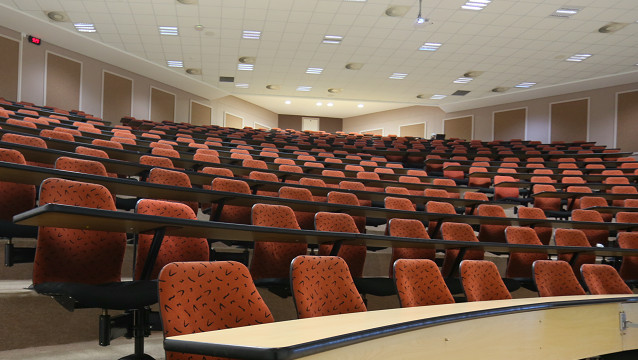
Rhodes University has developed an integrated approach to academic orientation by setting up panel discussions that are more in line with its general formative degree structure.
“This year, we have grouped subjects together in thematic areas and representatives from each subject will appear on a panel to answer questions posed by a student facilitator,” said Dr Chrissie Boughey, Deputy Vice-Chancellor of Academic and Student Affairs.
“We began with the idea that we wanted a ’new’ O-Week experience for students and worked from there. Once we had initial ideas we tried them out on others, got input and refined them and eventually got to the programme we have now,” Dr Boughey explained.
One of the most important things students need to do during O-Week is choose which subjects they will study in first year. The aim of the panels is to help students see how subjects ‘go together’ and to open up a range of new ways of thinking about studying at Rhodes University.
Dr Boughey explained that most students might not know that it’s possible to do a degree in Space Science at Rhodes nor a degree in Business Science. The panels will explain how this, and more, can be achieved. Students are encouraged to go to as many panels as possible to learn of the vast array of different subjects open to them and how these can be grouped together to achieve ‘unique’ degrees and really give an individual an edge in the world of work.
“Students should be aware that the structure of the undergraduate degree at Rhodes is different to other universities. We do not offer, for example, a ‘BA (Psychology)'. Rather we offer a general formative degree which requires students to engage with a range of subjects at first year level and which then offers specialisation as students move up the academic ladder. A student wanting to specialise in Psychology would have a BA with Psychology as major. This structuring has been shown to have significant advantages over the narrowly-focused vocational degrees offered by other universities. Students have in-depth knowledge of two subject areas and can find another route to a degree if they find their chosen subject is not for them or they find they suddenly absolutely love another subject. The flexibility we offer is a great strength,” she added.
Some of the panel discussion that students can expect include:
Faculty of Humanities
Humanities and the World of Work: Monday 5 February 09h30-10h30
The group of subjects in this area focus on human beings and their interactions with and within the workplace. Come and hear academics from Industrial Sociology, Organisational Psychology and Management talk about this fascinating area of study.
The Good Society, the Good Life Wednesday: 6 February 09h30-10h30
Possibly more than ever before, people are thinking and talking about the state of the world we live in as we confront problems such as global warming, hyper-capitalism and inequality. Study in this area allows you to think about the ‘big questions’ we must ask ourselves as we begin to try to solve problems at a more practice level.
In this panel, academics from the Departments of Philosophy, Politics, Economics and the Faculty of Law will talk about their subjects and the way they go about considering what can constitute a ‘good’ society and a ‘good’ life for all.
Some of the careers stemming from this area of study include journalism, work in banks and insurance companies, work in the civil service, a whole range of employment drawing on the law and, of course, an academic career
Faculty of Science
Space Science: Monday 4 February 15h00-16h00
South Africa is an important location for the study of space as our open skies allow for the use of sophisticated telescope systems such as the Square Kilometre Array located in the Karoo. Subjects in this area are Mathematics, Physics, Computer Science and Mathematical Statistics.
Anyone qualifying in the area of space science could expect to work as a researcher on systems such as the Square Kilometre Array or its precursor, the Meerkat. Work in space agencies is also opened up along with, of course, a career as an academic in universities across the world.
Faculty of Commerce
Law and Commerce: Wednesday 6 February 11h30 -12h30
All large companies employ lawyers to manage their affairs. Becoming a corporate lawyer would involve studying Legal Theory, offered by the Faculty of Humanities, and a range of subjects in the Faculty of Commerce and then, possibly, taking a two year LLB degree in order to qualify as an attorney although it is possible to find work without doing this.
Panel discussion will be held at Barratt and more details can be found in Yours in Academic Excellence handbook.
See: https://www.ru.ac.za/orientationgateway/ for a full orientation programme
